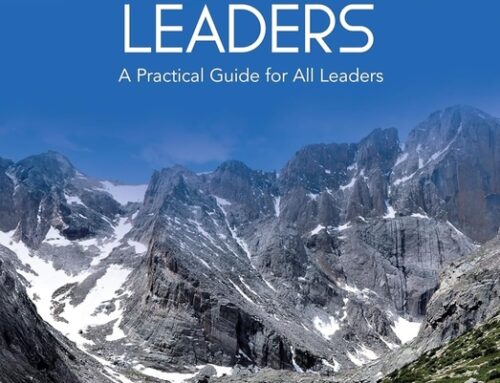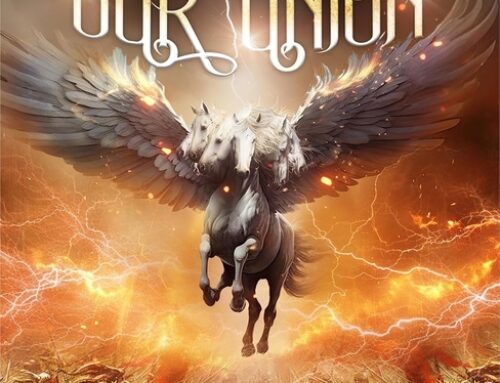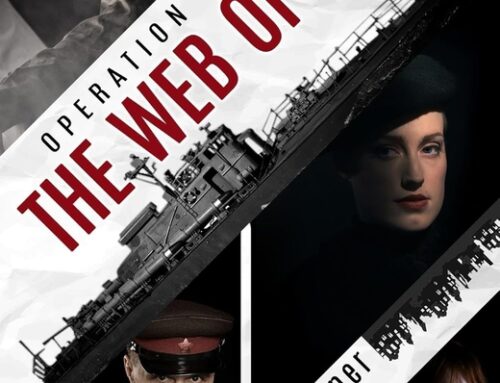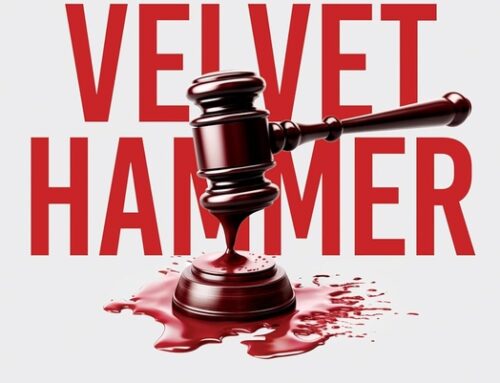
Two of the publishers asked for five more chapters each. But between their asking and my finishing, the financial crisis hit, and it was pretty much crickets after that. In the meantime I racked up several kind rejections that all said pretty much the same thing: “Love the story, love the writing, I just don’t know where to position this or how to market it.”
I wrote my book the way I wrote it for a reason: Americans love travelogues and funny, semi-romantic coming-of-age memoirs set in exotic locations. But they don’t read much serious journalism about the Middle East, even though it’s important for a taxpayer to understand what his or her tax dollars are actually doing. Who can blame them? Most books about the Middle East are depressing, hard to relate to, and full of jargon.
So I was offering a “spoonful of sugar” to help the medicine go down. Instead of preaching to the American public, I was listening to their tastes in reading and giving them what they wanted without compromising the realities I was trying to get across. I saw it as a chance to fill a hole, define a new genre — plot-driven mass market travel memoir journalism. Someone had to be first.
But all the publisher sees is: “This doesn’t quite fit the straight journalism box, but it’s also not a straight travel memoir. Doesn’t compute. Next.”
I tried my luck with smaller publishers, and two offered to publish my book. I hired a consultant to look over the contracts, and I gave them both a great deal of thought. But in the end, as a first-time author with a genre-bending book about which I am deeply passionate, I decided it didn’t make sense to publish on their terms. And I’m not convinced a major publisher would have been much better. Here’s why.
Basically, here’s what a publishing house offers:
An advance. Ah, the lure of the six-figure advance. Everyone dreams about it. I certainly made a few fantasy plans about what I would do with it. But in reality, publishing houses are giving less and less to untested authors, and of course it’s only an advance against royalties. The vast majority of authors never earn out their advance, which means that’s all you get. And $25,000 (if you’re lucky) for three years of work puts you waaaaaay below the poverty line. (Small publishers rarely give any advance at all.)
Editing. This is a big one if your book needs to be edited, which most do. Hiring someone to edit a full-length book with real skill can cost from a few hundred to a few thousand dollars. I was lucky to have an agent who gave excellent advice about structural editing and friends who helped me catch most of the typos and remove overly-purple prose. You can also join a writing club and trade manuscripts with other aspiring writers to cut down on the professional editing you’ll need.
Another point to consider: A lot of publishing houses are cutting costs in part by cutting the quality of editing, and many won’t take on a book unless it already looks almost ready to go. In fact, many people who get published in New York had to hire their own editor to even get their manuscript in good enough shape to be considered by an acquisitions editor. So you may end up doing a lot of your own editing regardless of what happens.
Cover design and interior formatting. This is extremely important, but it can be done by freelance professionals for a few hundred dollars, or you can learn how to do it yourself.
Printing books. This one’s becoming almost a no-brainer. With the rise of print-on-demand (POD) technology, it’s the last thing you need a publishing house for. POD books can be printed instantly for about $5 each time a book is ordered, and if it’s well-designed, it’s indistinguishable from a ‘real’ trade paperback. Publishers can print books for around $2 each if several thousand are printed at once. But with all the overhead of warehousing and book returns, it’s practically a wash.
Publicity. New and midlist authors are stuck doing the vast majority of their own publicity even at major publishers. Only the mega-best-sellers get advertising dollars and serious public relations pushes.
Distribution. There’s no doubt publishers have the best chance of scatter-shotting your work to all corners of the country in a relatively short time. But most people buy their books online, and you can sell on Amazon just as easily as anyone else. It can be disappointing not to see your book in many bookstores, but keep in mind most new and midlist authors don’t get good placement in bookstores anyway. A few spine-out copies in a back corner aren’t going to do much for your sales numbers.
The worst part about signing with a publisher is that if you don’t make a splash in the first few weeks, they simply move on to the next book in their line-up, and your book languishes indefinitely with virtually no support at all. And your own creative marketing options are limited. Because you don’t own the words, you can’t decide when, where, or at what cost to sell them. You can’t even do giveaways without permission.
Subrights sales. If you have an agent and publisher, they can negotiate sales of foreign rights, translation rights, movie rights, etc., on your behalf. But I’ll talk about the downside of this below.
Stamp of approval. This is by far the most important thing a publishing house can give you: a signal to the world that you’ve made it past the velvet rope, that your book adheres to industry standards, that you’re not just some random hack in an immensely crowded field of hack writers. You might get good reviews from credible sources, a signal that people should take you seriously. And I admit, when I’m working on setting up speaking gigs and public appearances, it would be very nice to have a professional in my corner.

And I didn’t need reviews to get blurbs for the cover of my book. I just asked for them. Ten fairly well-known people out of the twenty I asked — authors, professors, editors, activists, some of whom I knew, some of whom I didn’t — were kind enough to read a representative sample of my book and write terrific blurbs. (The reviews are starting to come now, after the book is out and I’ve begun to send copies to people and publications I think might be interested.)
Also, to be honest, I pretty much never noticed or cared who published a given book before I started trying to publish one myself. Title, cover design, back cover copy, blurbs, cost, reader reviews, whether the first pages grabbed me, and word of mouth usually make my decision to buy or not to buy long before I think to look for a logo on the spine. (And you can buy a personalized ISBN, which allows you to set up your own imprint that will be listed as the publisher, and create a logo to put on your own spine. As long as you’ve created a professional-enough-looking product, most people will never know the difference.)
Meanwhile, here’s what publishers take away from you when you sign with them:
Creative freedom. If they want to stick you with a hideously ugly, inappropriate cover design, they can. If they want you to take out the kissing scene, they can make you do it. They always hold the power because you can’t opt out of the deal unless the publisher breaches the contract or the book goes out of print (a slippery concept in a world of eBooks and print-on-demand, and it can take months or years for it to kick in).
Most of the profits. Publishing houses have enormous overheads, which means an author’s per-book take is squeezed, sometimes into practical non-existence. I know a guy who published with a small house, sold 3,000 copies, and still hasn’t made a dime. Most authors are lucky if they can get $1 per book sold.
If you publish your own book, there’s almost no overhead and you can keep most of the profits. The way my book is set up, I take 25% of the cover price if the book is sold through Amazon, 66% if I sell it myself (which adds up quickly!), and 70% of revenues from eBook sales.
Self-publishing costs more up-front, but if you think your book has a chance of even modest success, you’ll save money in the long run. (I recovered the costs of publishing in the first month.) Not to mention the time and mental energy you’ll save once you stop trying to market yourself to agents and publishers and instead focus on your readers!
Rights to your words. Once you’ve signed on the dotted line with a publishing house, you no longer own your words. You can’t use them or post them or give them away whenever you feel like it. You might have an opinion, but you won’t have much of a say.
Control of timing. With a mainstream publisher, it will take at least a year from signing the contract to seeing it on the shelves. And that’s assuming you get a deal, which itself can take months if not years. Then the publisher can put you anywhere in her stack of priorities. She can promise a May release only to realize a similar book will be released at the same time and push it back six months. And so on.
With self-publishing, if you want it published in April, it will be published in April. See how that works?
Control of pricing. Mainstream publishers tend to price books low so they can pad razor-thin margins with bulk sales and you don’t make much money — and for the most part these days, neither do they. Independent publishers tend to charge $20 or more for a trade paperback, which means few get sold and you still don’t make any money. With self-publishing you can set a nice, middle-of-the-road price for the paperback and sell eBooks as cheaply as you want, and still make more per book than you’d make with a small or large publisher.
Control of subrights sales. A publisher can sell various rights to your work (foreign, translation, movie, etc.), usually without your input (especially if you’re a new author with no leverage), and they take a huge cut of the revenues. If you do well at a small press, they can turn around and sell reprint rights to a bigger publisher and take half the profits. If I spend three years writing a book, and a publisher spends a few months editing and printing it, why should I give them such a huge chunk of the revenues?
I know an author who published with a tiny press that soon went out of business. She was lucky enough to find an agent who sold French translation rights, which got her noticed in England, which led to a mainstream publishing deal. If she’d still been tied up with her small press, it would have been up to them, not her, what happened once the majors came knocking.
If your book does well enough—say, if it sells 5,000 copies—it will be noticed, and then you can seek an agent to sell subrights (possibly including reprint rights to a commercial publisher), if one doesn’t come seeking you first. And then you can negotiate on your terms, with some leverage instead of none, and with the agent taking only 15% of revenues instead of your small publisher taking half.
In summary: If you’re a new author, signing with a publisher might make sense if you aren’t too bothered about making money, if you need significant editing help, if you’re not willing to invest the time, money, and work of doing things yourself, if you crave the feeling and instant credibility of making it past the velvet rope, if you have little marketing reach or experience, and if you know your publisher will go to bat for you on publicity.
But if you know what you’re doing, if you know what you’re in for, if you have a terrific, professional-looking product, if you have access to relevant networks, and if you’re willing to work hard — self-publishing might just be the way to go.
Pamela Olson’s Fast Times in Palestine is available through Amazon.com and other outlets.
Get an Editorial Review | Get Amazon Sales & Reviews | Get Edited | Get Beta Readers | Enter the SPR Book Awards | Other Marketing Services























This seems like a shallow comparison. It’s a great description of self-publishing, and then sets up a lot of straw men for the traditional industry to knock down.
I like that we have the freedom to self-publish. I think it’s a great choice for a lot of books. But I think traditional publishing is also a great option for a lot of other books, and there is no straight comparison. No-one would care about Harry Potter if it had been self-published. The author doesn’t have the technical savvy to have done the same thing, and traditional publishing has been good for her. Same goes for a lot of people.
Self-publishing isn’t one size fits all, and it’s deceptive to suggest that it’s objectively better than traditional publishing and to set them up against each other. Or to make people who go the traditional publishing route sound lazy and stupid, honestly, which the second-to-last paragraph does.
Fair point that one’s not objectively better than the other — I said at the end only that it might be the way to go, not that it always is. Harry Potter clearly needed its push to become what it became (I also mentioned that you should be sure your publisher will go to bat for you on publicity, which doesn’t often happen the way you expect or hope for, for new authors — JK Rowling hit the jackpot, but that’s about as common as hitting the actual jackpot). And some people need the credibility inherent in a “real” publishing contract to fulfill their goals. It’s all up to the individual.
I was just speaking in broad strokes in this article. It’s not meant to be exhaustive, just some points to ponder, aimed particularly at new authors with exciting new ideas who are on the fence about going through the pain, time, energy, and expense of trying to please corporate publishers. Your mileage may vary 🙂
Cecilia,
I think to say that no one would care about a self-published Potter is interesting, since I have no idea how you came to that conclusion – especially since there a a number of fantasy authors who have been very successful self-publishing. Also, Rowling does, in fact, have the technical savvy at least to hire people to exploit her e-pub rights, which she has done without the publisher.
We’re also comparing apples to oranges here, because when her first book came out, she definitely would not have been able to self-publish the way authors do today, simply because Kindle didn’t exist and self-publishing wasn’t really viable at that time.
I think Pamela does make light the amount of work that goes into self-publishing, however. It’s a hugely time-consuming endeavor that would certainly not be to everyone’s liking. But, having said that, it’s definitely true that an author who self-publishes, once all the headaches are over, makes vastly more per sale and therefore, can sell far less and make the same money.
Agree with everything you say. I have a publisher (mainstream/no payment arm of a company which made money helping people self-publish). I do find I need them to handle distribution and payments but that’s about all. The rest has been up to me.
The book is in paperback and now an eBook available through Amazon and this is tipped to be the way to go. Fingers crossed. I believe trad. publishing is doomed if it doesn’t wake up and smell the coffee. Readers can choose now without gatekeepers telling them what they ought to be reading.
What’s needed for the go-it-alone author is a good promotional service and this is where big money can be made by those clever enough to take the opportunity.
Great information! I’ve been going back and forth about self-pub over traditional (even though I’m not quite at that point) and this was very helpful! Thanks!
A well thought out post. Too many people are enamored of the book contract on emotional terms, but often overlook at the practical drawbacks to traditional publishing. I’ve had over 40 books traditionally published and hit all the bestseller lists, but am now 100% self-published, including my backlist. I just received an offer that made no sense from a large publisher. It would be a step backwards.
Every author out there who still believes they have to sell to an established publisher to be successful–and there are still plenty of them–should read and then re-read this post. Pamela, well done. And now I’m going to go have a look at Fast Times in Palestine.
While I can see much of what you say as being true for your experience, I’d say you were badly advised when it comes to ownership of your words. The first clause I changed in my publishing contract was the copyright, ensuring that the copyright was assigned to me. Publishing deals are like investment deals, it takes time to find the right fit and there is more to consider than just money. In the non-fiction space very few authors make money from sales of their book, they make money in the follow up business, speaking tours etc.
Self publishing is more akin to bootstrapping a startup. Definitely a viable method but much harder work and likely to lead to a slower growth path for the author.
Wow, you got to keep your own copyright? Which publisher was this? How do they make money if you have the right to undercut their prices because you own the words? I’m genuinely curious. Because this is the kind of publishing contract I might actually sign. (I couldn’t even get a real say in my cover design in my contracts.)
Pamela, the actual copyright should always belong to the author. What the publisher is supposed to be buying is the right to publish the book for the term or under the conditions of the contract you sign, plus any other rights included that you agree to. If a publisher asks for the copyright, run very fast. 🙂
What they usually demand is the *exclusive* right to *publish* your words. That’s what I was referring to. The copyright obviously belongs to the author — apologies, I misspoke. If I could find a publishing house willing to publish on a non-exclusive basis, I might consider it. But of course the house might be afraid to invest in my book only to have me undercut their prices or even sell rights elsewhere. There’s the rub.
I’m actually searching now for a UK publishing house — I’d be happy to sign over UK rights, because I doubt I’ll be able to make many inroads there when my book only prints in the US (and I live here and have contacts here, whereas I have far fewer there).
Thank you! This is what I’ve been telling my writer friends for years! 🙂 It’s the 21st Century. Self-publishing is the way to go.
Interesting point made by Celia Ryan – that nobody would care about Harry Potter if it had been self-published. That says it all! Without the expensive hype the book would have found its own level i.e. the bottom of the pile. Anyway, in answer to the rest of her comment, things are changing. I sincerely believe traditional publishing will disappear – alternatively it must adapt.
Enjoyed your post – it provides a good overview of the self publishing process. The way I look at it, is if you’re going to self pub then you have to work on the basis that you’re becoming your own publishing house – you do what you can do yourself and outsource what others can do better/help with. I discovered very early on that I should never, ever be allowed near cover design!
If nothing else, self publishing one novel gives you valuable insight into how the process works, what’s hard and what you can do for yourself. I think you also discover all sorts of skills you never knew you had! I like many authors just wanted to be able to hide away and write books and then have them magically appear in print. I’ve discovered though that I actually really enjoy the promotion and connecting with readers. That’s perhaps the one thing you left out of your piece – that self publishing can be a lot of fun!
“In fact, many people who get published in New York had to hire their own editor to even get their manuscript in good enough shape to be considered by an acquisitions editor. So you may end up doing a lot of your own editing regardless of what happens.”
Publishers are in the business of publishing great books, not teaching authors how to write. If you don’t yet write well enough that a publisher is interested in acquiring your book, then self-publishing isn’t going to magically fix that and will probably be just as disappointing financially.
I don’t necessarily disagree with the rest of this post, but the idea that good writing is something only for traditionally published books is just ridiculous.
This case is actually a great example of when self-publishing can be the way to go. There doesn’t seem to be any question that the book is great, but publishers are either unwilling to take a risk or can’t see a way to make a profit (given their cost structures). Self-publishing the book can be a great way to get a wonderful book to enough readers for the author to make a tidy profit.
“Publishers are in the business of publishing great books, not teaching authors how to write. If you don’t yet write well enough that a publisher is interested in acquiring your book, then self-publishing isn’t going to magically fix that and will probably be just as disappointing financially.”
Agreed.
“the idea that good writing is something only for traditionally published books is just ridiculous.”
Agreed. I’m curious where I gave the impression that I don’t agree with this sentiment?
If I decide to self-publish, I’ll reread this column once a week as a morale-booster!
Which POD houses offer a good paperback for $5 per book?
I used CreateSpace, and I’ve been very happy with them. There have been a few glitches, but they responded to them in a timely and professional manner.
Karen, depending on the trim size and # of pages, Amazon CreateSpace has prices in that range. https://www.createspace.com/
I used Create Space and found them to be reasonably priced. There interface is very good and on the occasion that I contacted their help desk I found them incredibly responsive. I’m working from Ghana and have had books shipped to me here that all arrive on time and as ordered.
Incidentally, it’s actually cheaper for me to print through Create Space and ship to Ghana than to print locally!
Speaking of Createspace, does anyone here know of a decent printer for the UK? I’m in the middle (more toward the end, actually) of using Createspace for Amazon.com and maybe an estore on my website, but I also want to be able to sell paperbacks in the UK. Obviously I can do Kindle for both, but stumped at the moment on a value-for-money POD. Lulu gets brought up but I think they are a bit pricey.
The interest in this subject and intelligent comments show that now is the time for a complete rethink about publishing. I’m sure there are some more switched on mainstream publishers who are panicking right now and asking themselves what they can offer their authors of the future. At the moment, the money side of things is always better with self-publishing. It has been the inability to distribute and market which has done for most authors going down that route. But this is no longer so. Amazon will take your book if properly formatted. Yes, you need to be aware if your illustration skills are not up to scratch and fork out for that (I did my own cover but I’m a painter by profession). There will be other costs but, if you have something worth reading, you now have the chance to share it with the world and possibly make a profit. What could be better?
By the way, here’s the single best article on self-publishing that I’ve ever read: http://reviews.cnet.com/self-publishing
Well worth a read.
Great post, Pamela. For POD, I agree, CreateSpace is the way to go.
Thank you very much for your insights in this post, you’ve given me a lot to think about. I’ve always taken a dim view of self-publishing (assuming it meant you weren’t good enough to get a “proper” publishing deal) but I’m beginning to appreciate that isn’t true. Self-publishing is not “the easy way out” and the only people that will really make money from doing so are the ones prepared to put the blood, sweat and tears in themselves to make it as high standard as publishing house books.
I think it will be a while before a lot of people start to think the same way then. My genre is rife with poorly written, badly edited work which is making it difficult to know what is and isn’t worth reading and is doing little to dissuade the part of me that still thinks self-publishing is an easy fix for second-rate authors.
Self-publishing *is* an easy fix for second-rate authors. But their books will never sell beyond a few beleaguered friends and family members. Quality writing, however, mixed with reasonable marketing savvy can be a viable — even preferable — alternative to traditional publishing for some. I’m offering some reasons why. It’s not easy at all, and it can cost significant money up-front. And if your writing is terrible, forget it — just post it on your website and be done with it. But I can’t tell you how glad I am that I didn’t go with a publisher right out of the gate. To each his/her own.
The question for readers, of course, is how do you separate the wheat from the chaff? That’s what’s awesome about reader reviews, book blogs, and word of mouth. You don’t have to strike out blindly. The cream has a good chance of rising to the top. And if a reader wants some mildly entertaining dreck for 99 cents, hey, it’s up to the reader! The market’s wide open.
The nice thing is, if you price a quality book at $3.99, you still make more than if your publisher prices it at $9.99.
Last night halfway through editing my book, my harshest critic stated, “Other than you being comma challenged, I wouldn’t change a word.” I got to thinking about that. I don’t want to change a word. I want to design the cover. I want to create a book trailer. I don’t want to spend more torment on the query letter than I did in writing the book. I don’t want to wait 2-3 years before seeing my book on the shelf. I’d rather spend my time promoting my book than waiting around to see if I crafted the perfect query letter, and then spend more time waiting to see if my book is “right” for an agent, and even more time to find out if it’s “right” for a publishing house. My book is “right” for me. I strongly believe my book will be “right” for my targeted audience. As I was eating lunch today and flipping through “Entertainment Weekly” I noticed there were reviews of self-published books. And I thought, why not self publish?
This was the first post I happened upon while looking for reviews of self publishers. I’ll take it as a good sign 😉
Hey, I didn’t know EW reviewed self-published books! Things are changing faster than I thought…
I went through three years of waiting around on agents and publishers. The only one who really did me good was the agent I got before I’d written a word of the book. She really helped me develop it. Everything after that was a huge waste of time and energy. (Though it did give me the insight to feel sure that self-publishing was the right choice for me, at least for now — I am pretty hard-headed, the only way I really learn is through experience.)
I like Elena’s comment and attitude. Life is too short to mess about trying to please people who have only one aim – to make loads of dosh. Once the publishing industry did care about quality. Now it’s celebs they court for guaranteed returns. I wish Elena luck but don’t think she’ll need too much of it – she has what she needs to succeed.
Thanks for the kind words Anne…I’ll be excited to soar with my wings intact.
Pamela, I love the article. I just self-published my first novel and I came to all the same conclusions as you. Kudos!
I cannot emphasize enough the importance of attending to detail in a self-published ebook. Not only must your spelling, grammar, and punctuation be spot-on, but you should also be sure you have chapter headings that stand out, page breaks before chapters and other finishing touches you’ll see in most (sadly not all) ebooks published by bigger publishers. Before you publish, test your book for bits of code that appear in odd places–artifacts of some conversion software acting on certain native formats (Word, etc). A first impression is really, really important. I know an editor who swears he can spot a self-published book a mile away. He can’t. What he CAN spot is a badly-formatted ebook. Pay attention to details and he won’t be spotting you.
Amen, sister.
And authors should probably also be aware that using MobiPocket Creator to convert files can create artifacts that show up only in certain e-readers. Always check your output on as many devices or emulators as you can.
Harry Potter is the counterexample? First entries came BEFORE Kindle/2007…and of course the exception behind which publishers throw all their resources is the exception. Potter isn’t midlist.
Today, Rowland could have started with an ebook as opposed to trotting her first novel to publisher after publisher, then gotten a big enough success there to get picked up by a print publisher now convinced to spend money on publicity.
One other thing publishers get you is access to reviewers and entry into book competitions. So, while they may take profits and many of the rights, they also make it easier to have your book seen by more people – just because their logo is on the binding. So, there are certainly benefits, depending on what the author wants to have happen to the book.
However, if the publisher says, “We’ll publish it, but only if you turn it into something different,” forget it. (Well, unless you don’t mind doing that…)
What an excellent article! Many of the reasons you’ve listed are why I decided to go the self-publishing route. One of the most important ones, though, is because I don’t want to have to write according to some cookie cutter formula that publishing houses have decided is the only way to go. I want to tell my stories, and I want to tell them the way I believe they need to be told.
But I’m very glad to have read this because now I have more reasons than ever to be glad I’m an ‘indie.’ 🙂